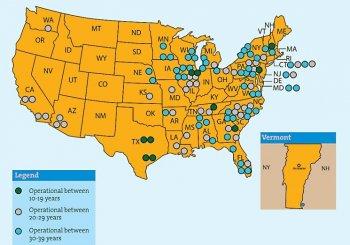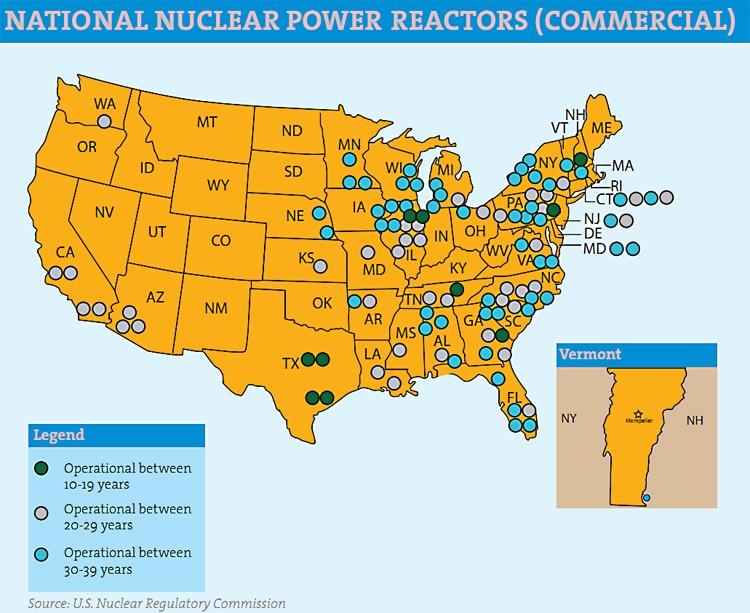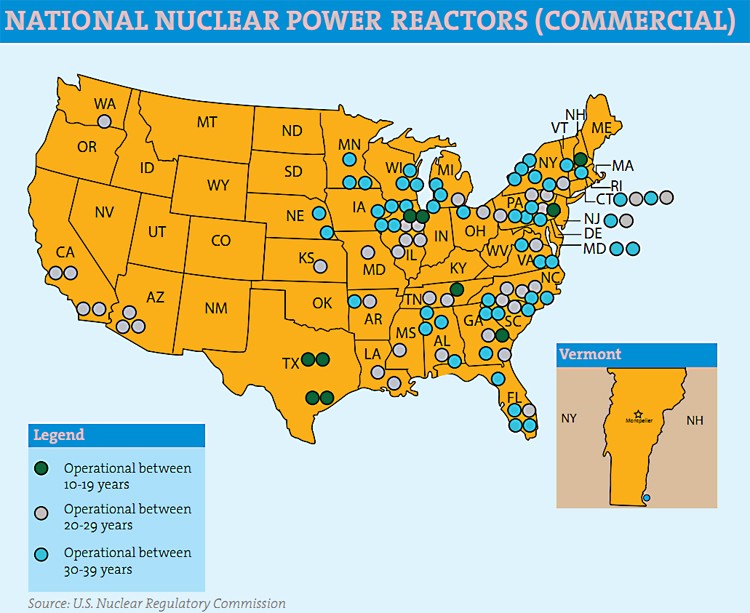Vermont Judge Rules Against Nuclear Plant
A Vermont judge rules against a preliminary injunction that would allow Vermont Yankee Nuclear Power Station to continue operating after March 2012.

National Nuclear Power Reactors Map U.S. Nuclear Regulatory Commission
|Updated:


